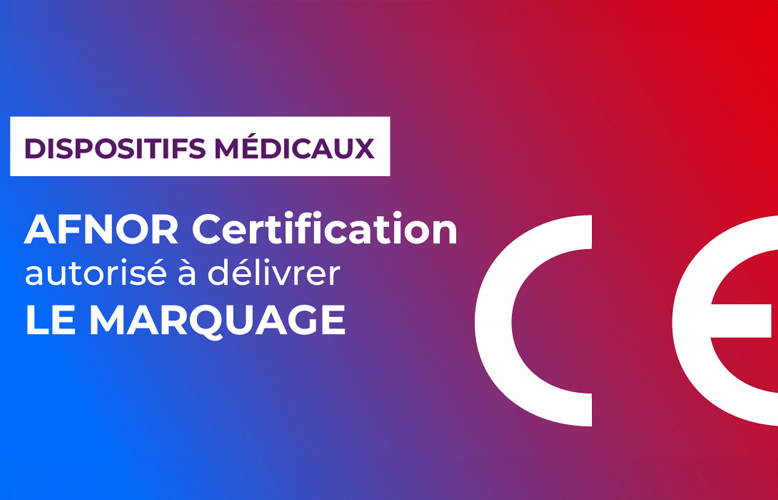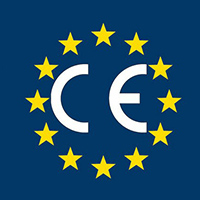CE marking assessor for medical devices, a strategic job

Prothèses de hanche, scanner, sondes et cathéters, implants mammaires… Pour servir le marché des dispositifs médicaux (DM) en Europe, les 2 000 et quelques fabricants français de ce secteur stratégique attendaient impatiemment l’arrivée d’un nouvel acteur qui puisse apposer le marquage CE sur leurs appareils. C’est chose faite, puisque le 22 avril 2024, l’Agence nationale de sécurité du médicament et des produits de santé (ANSM) et la Commission européenne ont autorisé AFNOR Certification à délivrer le précieux sésame. Dans le jargon, la filiale du groupe AFNOR devient donc « organisme notifié ».
Un nouvel acteur sur un marché sous tension
De quoi aider à résorber la file d’attente, importante en France, tant les fabricants ont du mal à trouver rapidement un interlocuteur national pour traiter leur dossier de marquage et ainsi s’ouvrir la porte du marché européen. Comme pour des milliers d’autres familles de produits, le marquage CE est en effet requis pour commercialiser un dispositif médical dans l’Union, matérialisant la preuve que le produit est conforme aux règles de sécurité en vigueur (celles du règlement 2017/745 et 746) au sein des Vingt-Sept. La procédure est exigeante et représente un coût pour le fabricant, souvent intégré en aval des essais cliniques. « La France, qui est pourtant le deuxième marché du dispositif médical en Europe, ne comptait jusqu’à aujourd’hui qu’un seul organisme notifié, contre 10 en Italie et en Allemagne », explique Thomas Lommatzsch, responsable de l’offre médicale d’AFNOR Certification.
L’entreprise se présente sur le marché avec une équipe d’experts pointus, qui ne demande qu’à grandir. Leur mission : vérifier d’une part la conformité d’un dispositif médical aux exigences du règlement, et d’autre part l’efficacité du système de management de la qualité mis en place par le fabricant, au sens de la norme ISO 13485. La connaissance de ce référentiel qualité est donc un prérequis important pour devenir évaluateur, que vous évoluiez dans ce secteur en tant qu’indépendant ou en poste chez un fabricant. Dans le deuxième cas de figure, vous serez alors amené à examiner les demandes de marquage autres que celles émanant de votre entreprise, pour des familles de produits différentes que celles que vous connaissez.
Evaluer les DM : bien plus qu’une liste de cases à cocher
Thomas Trullen, récemment certifié responsable d’audit et fin connaisseur de l’ISO 13485, a fait le choix de s’engager dans ce secteur avec comme ligne de mire la protection des patients : « J’ai fait une première année en école d’infirmier avant d’entamer des études de médecine. J’ai alors constaté qu’il y avait de la maltraitance, ce qui m’a fortement heurté. D’où mon intérêt pour le respect des règles. Je ne fais pas de l’audit pour être méchant et empêcher le fabricant de tourner en rond, poursuit-il, mais pour que les processus fassent en sorte que les produits proposés aident le patient et donc le protègent. Certes, lire 250 pages de documentation technique peut sembler rébarbatif, mais on change de point de vue quand on saisit les enjeux humains sous-jacents. »
Pour Chrystel Gary, de formation ingénieure et auditrice QSE et ISO 13485, ce qu’elle aime le plus dans ce métier, « c’est de rencontrer les équipes : c’est riche d’expérience et offre une vision plus globale. Car l’audit, c’est aussi une histoire de personnes. À la clé de sa réussite : de l’écoute active, de l’empathie, une fine observation de ses interlocuteurs et des questions précises pour comprendre leur démarche et le contexte. » Le côté humain reste au cœur de toute démarche. « Un bon auditeur se doit d’avoir une forte ouverture d’esprit et de gommer ses préjugés pour se concentrer sur ce qu’il peut apporter aux audités. », martèle Chrystel Gary.
Les dispositifs médicaux embarquant de l’IA, un marché d’avenir
Autre point d’intérêt pour les auditeurs et auditrices amenés à rejoindre l’équipe d’AFNOR Certification pour le marquage CE : découvrir ce que les fabricants font concrètement pour respecter la norme et les référentiels. « Parfois, on est surpris de voir qu’ils y sont arrivés grâce à des processus auxquels on n’avait pas pensé, commente ici Thomas Trullen. Ce métier demande une gymnastique intellectuelle, de la curiosité, une capacité d’adaptation, en plus de la connaissance des règles déontologiques. Il faut aussi se montrer pédagogue pour que les points de non-conformité soient bien compris. »
Les professionnels qui souhaiteraient se spécialiser dans le marquage CE des DM peuvent compter sur l’accompagnement d’AFNOR Certification pour les mener à la qualification, en passant par la case formation. Avec un focus sur la famille des dispositifs médicaux embarquant de l’intelligence artificielle et celle des dispositifs numériques en e-santé, un marché en plein essor sur lequel les start-ups françaises sont particulièrement innovantes et bien placées.
